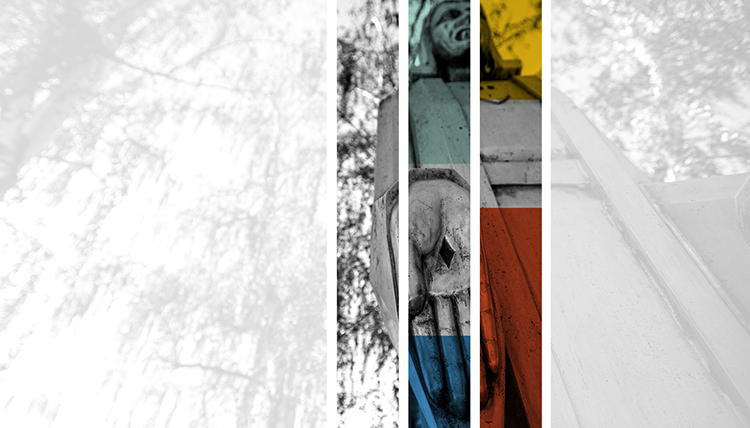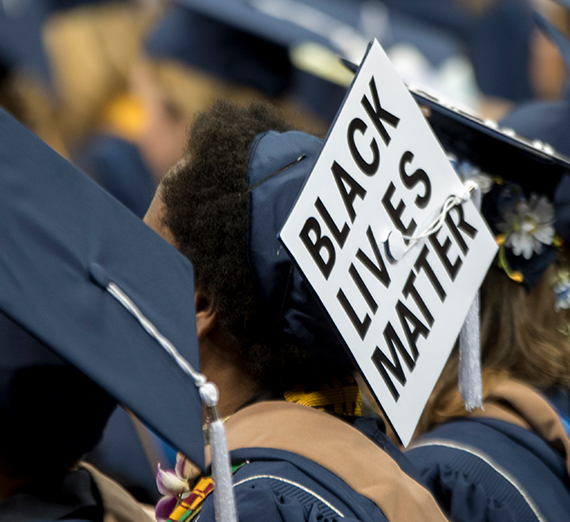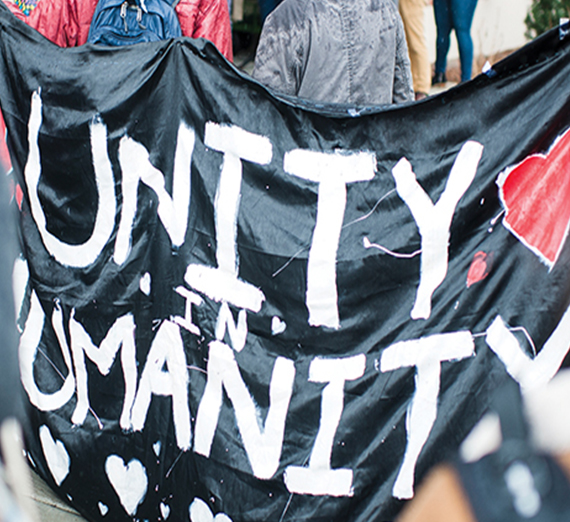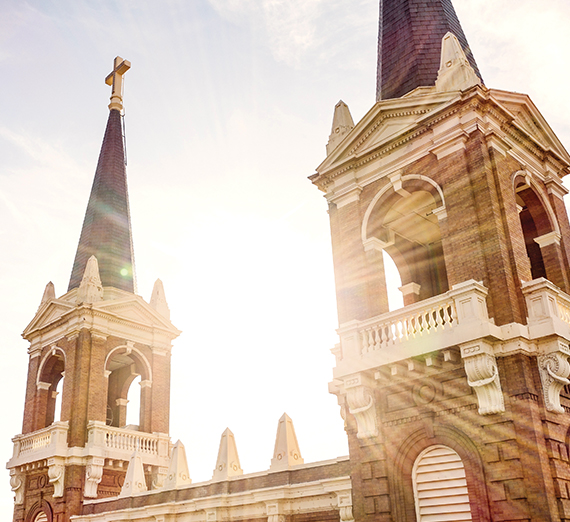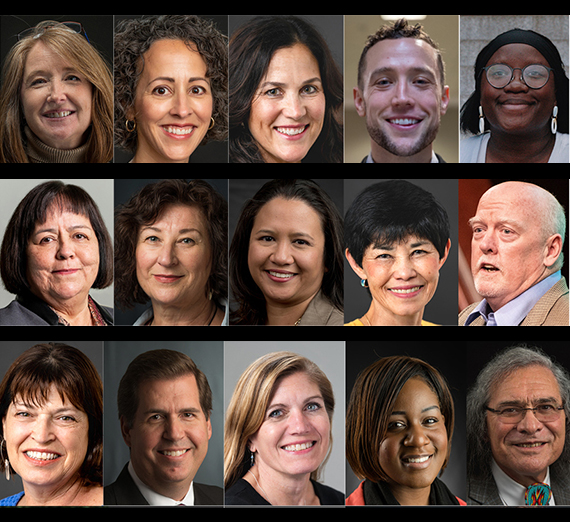The Rebirth of Reconciliation
How to fight racism and face the truth about structures of oppression
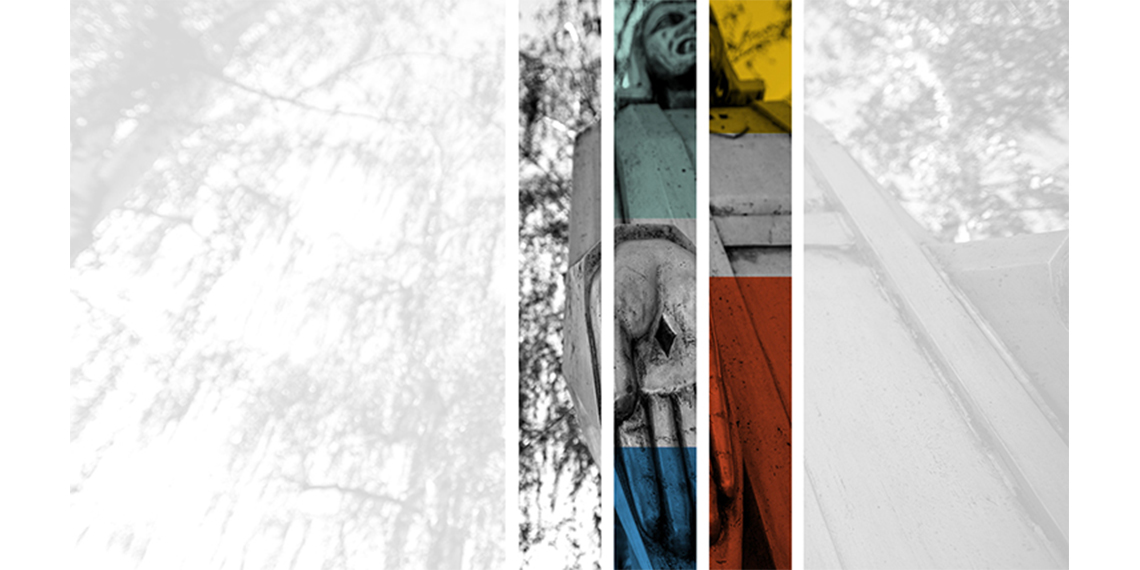
The year 2020 in history books will reflect not only the COVID-19 pandemic and its impact on the world, but also a critical period for the U.S. specifically in reconciling its racist roots and systems of power.
In a few short months since the May 28 killing of George Floyd, we have witnessed a divide not experienced so intensely since the 1960s. Today, as we argue over the removal of Confederate symbols, the purpose of protests and riots, and funding of law enforcement, our nation is pregnant with conflict. Conflict among families and friends over “Black Lives Matter” vs. “All Lives Matter.” Conflict within organizations determining how to respond as a collective. And certainly, conflict within ourselves as we endeavor to learn about what we believe and why.
What will be born of this movement? Hopefully, reconciliation. Reconciliation of past and present, left and right, white and Black communities (and others of color), and most importantly, reconciliation within our hearts.
In a message to the Gonzaga community on June 19 (“Juneteenth”), President Thayne McCulloh wrote of America’s history of enslavement, emancipation, reconstruction, segregation and the persistence of discrimination. Knowing that many would disagree, he wrote, “In the context of this significant national moment, and on this day of national commemoration, we must affirm: Black Lives Matter.”
He continued: “Our Jesuit tradition tells us that a condition of truth is to allow suffering to speak. So how do we fight the racism pandemic that has plagued our country and face the truth about institutional racism and structures of oppression?
Research on antiracism activism and confronting discrimination is clear that a critical step toward racial justice and equity-mindedness is self-education. All social change begins at the individual level, with listening – a learning that informs action. And thus, to reflect the Jesuit tradition of being contemplatives in action.President McCulloh acknowledged that Gonzaga is harnessing this moment as a catalyst for further, longer-term change that eliminates barriers, raises awareness, and meaningfully contributes to a better and more equitable future. He outlined commitment to five key actions:
1. Engaged listening with students and colleagues – especially our community members of color – to understand their experiences and identify opportunities for support and intervention.
2. Education and personal and professional development regarding prejudice and discrimination.
3. Continued efforts to recruit, hire and retain a more culturally diverse workforce.
4. An Implicit Bias Review of curriculum and pedagogy to evaluate what we teach and how we support culturally inclusive instruction.
5. Supporting collaborations among these key programs (and more)
- Diversity, Inclusion, Community & Equity (DICE) – Student Affairs
- Office of Mission & Ministry
- Academic programs such as Critical Race and Ethnic Studies (College of Arts & Sciences), Center for Civil and Human Rights (School of Law), Institute for Hate Studies and Center for Public Humanities.
(artwork by Henry Ortega)
Incarnating our Mission of Reconciliation by Working for Justice
Gonzaga’s Office of Mission and Ministry wrote to the campus community about the Jesuits’ Universal Apostolic Preferences, one of which calls Jesuit organizations to “walk with those whose dignity has been violated, in a mission of reconciliation and justice.”
“Arturo Sosa, S.J., superior general of the Society of Jesus, makes clear that any movement toward reconciliation is not possible without first striving toward justice. And justice, in the Catholic tradition, demands affirmative redress.
This involves looking at the world with the love of the One and Triune God so that we might be moved by the cry of victims of cultural, systemic and structural oppression,” wrote Kevin Brown, Mission & Ministry’s senior specialist for faculty formation. “These cries are God’s call to justice – to identify our own personal and corporate active and passive participation in them, to confront and resist them, and to find new ways of living together that incarnate God’s gratuitous love for all persons.”
Brown continues: “The Catholic tradition that shapes Gonzaga’s mission summons us to recognize in those laments nothing less than the voice of the Spirit of God, who dwells within each person, calling us to participate in God’s project of justice. As a Catholic, Jesuit university we are called, in the cultural context of anti-Black racism, to attend to the cries and laments of victims of racial injustice and to affirm with them that Black Lives Matter. We are called to discern how this affirmation can shape the way we teach and learn, research and create, minister and work so that Gonzaga might heed the call for Jesuit universities to be agents of social transformation.”
# # # #
ADVANCING UNDERSTANDING AMONG FACULTY & STAFF
- Expanding the office of Diversity, Equity & Inclusion (Welcome, Robin Kelley, associate chief diversity officer!)
- Productive Discomfort, a faculty workgroup addressing complex diversity-related topics, and A Call to Action, a series on recognizing and dismantling structural racism in course syllabi and classroom experiences
- Diversity.edu, online intercultural skill development for faculty and staff
- Gender Equity in STEM, a faculty group addressing gender bias
- Colleagues of Color, a cultural affinity group
- IMPACT – intercultural, multicultural professionals affecting change together
- Campus Climate - Assessment survey (spring 2021) to gauge effectiveness of cultural literacy efforts since the last survey 4 years ago
- Learning Circles on racial justice within a Jesuit university; and Indigenous and Christian approaches to creation and communion
- Prayer vigils with Mission & Ministry
RECOMMENDED READING
- White Rage: The Unspoken Truth of Our Racial Divide – Carol Anderson
- The New Jim Crow: Mass Incarceration in the Age of Colorblindness – Michelle Alexander
- How to Be an Antiracist – Ibram X. Kendi
- White Fragility – Robin DiAngelo
- God of the Oppressed – James H. Cone
- The Sin of White Supremacy:Christianity, Racism, and Religious Diversity in America – Jeannine Hill Fletcher
- Mujerista Theology – Ada María Isasi-Díaz
- Racism and the Image of God – Karen Teel (GU alumna)
- Christology and Whiteness: What Would Jesus Do? – George Yancy
- Academics
- Diversity & Inclusion
- Faith & Mission
- Division of Mission Integration
- Institute for Hate Studies
- Center for Civil and Human Rights
- Gonzaga Magazine

